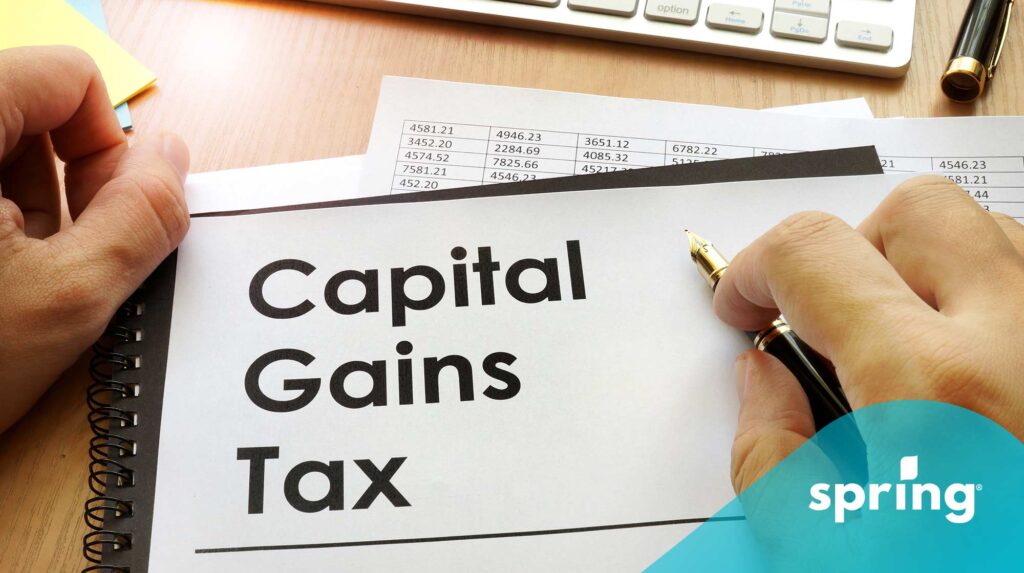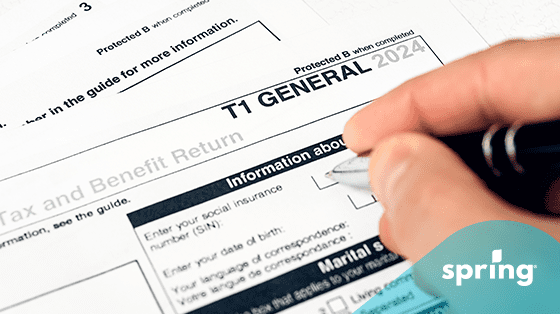Relentless price growth across the country is driving the discussion. Just recently, the Canadian Mortgage and Housing Corporation (CMHC), which is Canada’s federal housing agency, predicts the annual average home price in Canada could peak at $782,400 this year. That would mark a nearly 14% increase from the previous year’s average of $687,910.
A 14% year-over-year increase is impressive on its own, but it doesn’t tell the whole story. To put in perspective just how red-hot prices have been in Canadian real estate, consider the average home price in Canada was hovering around $400,000 back in 2015. Prices have nearly doubled in 7 years!
With that kind of unprecedented price growth, it’s no surprise the Canadian real estate market has become a growing target for investment. Let’s look at how to get off the sidelines and into real estate investing.
How to Start Investing in Real Estate
First off, we have an important distinction to make about investing in Canadian real estate. Buying a home to live in should not necessarily be considered “investing.” You are buying a necessity to live, called shelter, and while many will view it as a long-term investment, it is not primarily the kind of investing we are discussing.
Your home should appreciate over time, but it’s not to be considered a financial product that you want immediate returns from, unless you are planning a quick flip (more on that later).
Here’s a look at the kind of real estate investments we are going to discuss:
Rental properties – Buying a property for the intention of renting it out to a tenant, long-term or short-term. This can be a section of your home, like a basement, or a completely different residence.
REIT – Real estate investment trusts (REITs) are investment vehicles that you can buy and sell like a stock and financially benefit without having to buy expensive real estate.
REIT ETFs– Exchange-traded funds (ETFs) are baskets of stocks that you can also buy and sell on a stock exchange. Some ETFs compile various REITs, creating an affordable way to invest in real estate for beginners.
Speculation/flipping – This is when you buy real estate with the sole intention of selling it for more than what you paid in a short timeframe. The sale will be subject to a capital gains tax.
Principal residence – This is when you buy a home as your primary residence and sell it many years later at a profit without paying capital gains tax.

How to Invest in Canadian Real Estate
One of the most common methods of real estate investing in Canada is to buy a property for the purpose of drawing a rental income. It’s a growing trend in Canada’s urban centres. A report from Royal LePage pegged the number of Canadians who own a second home at more than 10%.
Some of those could be recreational properties, like cottages and cabins, but the majority is for rental purposes. In fact, more than two thirds of the survey respondents from Greater Vancouver and Greater Toronto said they were collecting rental income. The survey also found that young homeowners were capitalizing on rental incomes, with 18% of homeowners between the age of 18 and 35 owning more than one property.
Buying a rental property is much easier when you already own a property. You can use the existing equity in your principal residence to finance the purchase of a rental. As an example, someone who owns in the Greater Toronto Area might use their home’s equity to buy a more affordable condo in a small town like Guelph or London (Ontario), where this is a high percentage of students who need rentals.
If you don’t already own a property, and you are renting, then investing in a rental property where you live is inadvisable. You should secure a home for yourself first and foremost. However, if real estate prices in your region are cost prohibitive, then it’s worth looking into a rental property in a smaller, less expensive market where you don’t necessarily plan to live in the near term.
Here’s another example: if you live in Vancouver, where the average cost of a condo was $802,591 in 2021, buying real estate might be unaffordable, to put it mildly. However, perhaps you can invest in a rental property in a smaller BC city like nearby Nanaimo, where the average price for all residential properties was $470,738 in 2021.
Good Canadian Real Estate Investments
Ask a real estate agent what they consider a good Canadian real estate investment, and they will tell you there’s no wrong answer. Yes, it’s true if you look at the price trajectory of real estate in Canada since the financial crash in 2008, it’s been a mostly uninterrupted upward trend. Even the calamitous subprime mortgage disaster in the United States, which sent global economies reeling, only affected Canada’s real estate market moderately. It’s why Canada’s real estate market is so often characterized as stable.
That being said, there’s always a risk factor when investing in real estate in Canada, or anywhere else. The real estate market is subject to volatility, just like the stock market, and home values can plunge quickly if something shocks the market.
Real Estate Investing for Beginners in Canada
Beginners who want to invest in real estate should understand the risk in trying to time the market perfectly. Because Canada has been on an upswing for many years, and sent into overdrive during the pandemic, there are many who believe the domestic real estate market is due for a correction, or worse, a crash.
How severe that will be, or if it happens at all, remains to be seen. The point is: what goes up must eventually come down, and a good real estate investment should be able to weather any storms that come to pass.
Another consideration for burgeoning real estate investors is the political climate around housing in Canada. Governments at every level are being pushed to address the growing affordability issue with real estate in Canada. The skyrocketing prices have been a boon for established homeowners and real estate investors, but younger first-time buyers are being priced out of the market.
Governments are increasingly likely to get involved in the housing market, which could impact the kind of price growth we’ve seen in recent years. However, most government intervention so far has been to create more housing supply, which has yet to negatively affect the market.
Lastly, interest rates are no small piece of the real estate investing puzzle. The Bank of Canada sets what’s called an overnight rate. That rate guides banks, credit unions, and other financial organizations in what mortgage rates they offer. We’ve seen record low mortgage rates during the previous two years, but the Bank of Canada has recently signalled big rate hikes could be in the cards this year and next.
Higher mortgage rates could significantly cool buyer demand in real estate. Those considering an investment property should take pause and consider the impact interest rate hikes might have in the near future.
Best Way to Invest in Real Estate
One of the best ways to invest in real estate without having to save for a massive down payment is a REIT – real estate investment trusts. It’s one of the easiest ways to test the waters of real estate investing. REITs do the investing for you, purchasing large swathes of commercial real estate and residential real estate, then renting it out to tenants.
It’s not uncommon for REITs to own malls, large apartment buildings, and big industrial sites you typically see on the outskirts of the city. So how do you make money? Here’s how it works:
- You can purchase a REIT on the Toronto Stock Exchange like any other stock. REITs have share prices and you will need an investment account to buy them through either a bank or online broker.
- REITs buy and manage commercial property and residential property, then collect income from their tenants.
- REITs do not pay any corporate income tax because they distribute all income to shareholders, or “unitholders” in the case of REIT, via dividends. You will need to pay capital gains tax on your REIT income unless you keep it in a registered account like a TFSA or RRSP.
- You make money in two ways. Through quarterly dividends and the increased share price of the REIT. The amount of the dividend will depend on the number of units you hold in the REIT. More units equal bigger dividends.
Here are some top REITs in Canada:
- Canadian Apartment Properties (symbol=CAR.UN) owns $10 billion worth of residential apartments.
- RioCan is a major REIT (symbol=REI.UN) that owns over $6 billion of Canada’s biggest retail spaces with tenants like Loblaws, Canadian Tire, Winners, and more.
- Granite Real Estate (symbol=GRT.UN) owns over $6 billion of commercial and industrial real estate with warehouses and logistic properties in its portfolio.
The unit price for REITs can range depending on its market performance and popularity, but most are in the affordable zone of around $20. This creates a low bar of entry for those looking to invest in real estate. It gives you a foothold in the market without the daunting prospect of saving for a big down payment and paying back a mortgage.
REIT pays back investors with dividend payouts. When choosing a REIT, you want to look for a solid dividend yield. For example, if a stock has an annual dividend of $2 per share, and the stock trades at $20, then a dividend yield is 10%, which is really good.
Passive Real Estate Investing
If buying, selling, and managing a portfolio of REITs or other kinds of real investments sounds like too much hassle, there’s another option for a less hands-on investing approach.
REIT exchange-traded funds (ETFs) can be described as a big basket of REITs. Rather than go all in on one, you can spread out your investment across many REITs. It diversifies your portfolio with multiple types of real estate properties – commercial, residential, office, retail, and more – and protects you against the risk of one or two suffering REIT.
REIT ETFs are considered passive investing because you don’t need to manage them or have much involvement. ETFs, which you can buy and sell on the Toronto Stock Exchange, are managed for you, plus they are generally very affordable, especially compared to buying actual real estate in Canada.
Here are three popular REIT ETFs:
- CI First Asset Canadian REIT ETF (symbol=RIT) owns mostly residential and commercial real estate, including top-performing REITs like Canadian Apartment Rentals, Granite, and Dream Industrial.
- BMO Equal Weight REITs Index ETF (symbol=ZRE) has been around for 10 years and is mostly composed of residential and retail REITs, including Granite and Boardwalk.
- IShares S&P TSX Capped REIT INDEX ETF (symbol=XRE) is managed by a global investment firm called BlackRock. Retail and residential REITs make up the bulk of the fund, including RioCan and Allied Properties.
To get started investing in REIT ETFs, you will need to open an investing account with either a bank or online broker. You can do it yourself online in a few minutes or call a bank associate to help you. It should be noted that ETFs charge management fees, which is usually a small percentage of the fund’s average assets per year.

How Much Can Real Estate Investors Make in Canada?
For something that involves such large sums of money, real estate investing doesn’t require a huge amount of knowledge. In fact, you can do some napkin math to quickly see if the investment is feasible.
Let’s say you have $50,000 to invest and want to buy a condo to rent out. Looking for a property in downtown Vancouver or Toronto will be especially challenging due to price. Better to scour markets in the deep suburbs or smaller cities and hopefully find a property for the price of around $250,000.
With a 20% down payment ($50,000), you can purchase the property without needing CMHC insurance, which will add to your overall mortgage.
- Purchase price: $250,000
- 20% down payment: $50,000
- Estimated monthly payments: $1,051 (based on 3.99% interest rate with 25-year amortization)
- Maintenance fees: $300
- Monthly property taxes: $100
- Monthly Insurance: $60
- You monthly carry costs: $1,511
The next step to your research is getting a feel for market rental rates where you are buying the property. Can you rent out a one-bedroom for $1,750? According to national rental stats, there’s a long list of cities and towns where you can command that rental price or higher.
In this scenario, a $1,750 rent will net you an annual rental income of $21,000. Minus your expenses and mortgage payments you are left with $2,868 annually ($21,000-$18,132=$2,868). That works out to a 5.7% annual return on your $50,000 down payment investment.
Of course, being a property manager is more than just collecting rent cheques. As a landlord you are responsible for maintenance of the unit, and an emergency plumbing problem will be your financial responsibility. That could cut into your profits or even leave in the red at the end of the year. On the bright side, you will be gaining equity and an appreciating asset, plus there are various tax deductions that can benefit you.
Best Places to Invest in Real Estate in Canada
With prices in Canadian real estate ripping upwards in recent years, the question of “where should I invest in real estate” has become “where can I afford to invest in real estate.” Major cities like Vancouver and Toronto are no longer financially feasible for most, but Canada’s midsize cities still present opportunity.
Here are 5 cities that still offer real estate affordability:
Edmonton
Alberta’s capital is full of lush ravines, summer festivals, and dynastic NHL hockey. It also has an average home price of $364,400, which is less than half the national average ($796,068).
Saskatoon
Saskatchewan’s largest city is a significant economic and cultural presence in the prairie province. The average home price of $334,100 is even less than Edmonton.
Winnipeg
Despite its infamous winters, the Peg is rich in history, culture, sports, and general livability. People are discovering Winnipeg. Case in point: the average home price ($348,900) jumped 14% year-over-year.
Halifax
The beautiful seaside city of Halifax has witnessed enormous price acceleration. The average home went from $359,900 in 2021 to $493,200! However, it’s still well below the national average.
Calgary
At the foot of the beautiful Rockies, Calgary has amenities, post-secondary schools, new transit and a thriving economy. Its average price of $503,400 still presents affordability for investors looking to plant roots or draw a rental income.
How to Invest in Real Estate with No Money in Canada
It can be tough sitting on the sidelines watching others benefit from a high-performing real estate market. If your bank account does not reflect hefty capital to burn, there are options for investing in real estate without money.
Rent-to-own – A rent-to-own scheme is similar to leasing a car: a portion of your rental payments, called rent credits, is put towards a purchase price. You can decide to buy at the end of the lease or agree to buy at the start of the lease, locking in a price in case it goes way up in value. There are a few companies in Canada that facilitate these arrangements.
REITs – We discussed at length how REITs can give you entry into the real estate market without having to buy a property. If you don’t have money, you can apply for a personal loan to get started investing in these tradable shares. A loan gives you an opportunity to build credit too while enjoying the dividends and potential price growth of the REIT.
Can Foreigners Invest in Property in Canada?
Foreign investment in real estate is a hot-button topic in Canada, especially in cities like Vancouver and Toronto. Many have pointed the finger at foreign investors in Canadian real estate as the culprit for skyrocketing home prices. The debate has even spread to a national concern, with the federal government planning a 2-year ban on foreign buyers.
In the meantime, it is still perfectly legal to buy property in Canada whatever your nationality. But there are deterrents popping up in the form of provincial taxes. Ontario, for example, now charges a 20% foreign buyer tax on real estate purchases in the province. BC is the only other province with such a tax; it also charges 20% on foreign buyer purchases.
Is Flipping Houses Profitable in Canada?
Unless you’re one of those clever home improvement types with plenty of money to spend on renovations, house flipping is not a recommended racket for real estate beginners. Those who profit at flipping houses can usually buy a home, invest significantly into renovating, and sell it within a short time frame. Yes, it can be quite lucrative in a strong market, but it takes plenty of experience and capital.
Others will buy a property, do nothing with it, and sell it a year or so later for a profit – that’s also considered house flipping. But that’s a risky move because you are solely banking on price growth and a continuously surging market. Also, you will have to pay capital gains tax on the sale, unless you declare it as your principal residence – the place where you live – and that’s usually not the case.
Spring Financial Can Help You Get into Real Estate Investing
If you lack the funding to get started investing in real estate in Canada, Spring Financial can give you that much-needed starting point. Personal loans are ideal for initial investments while building up your credit score at the same time. If you plan to take out a mortgage one day, it will be beneficial to start building a strong credit score today. Talk to our associates about your options.








